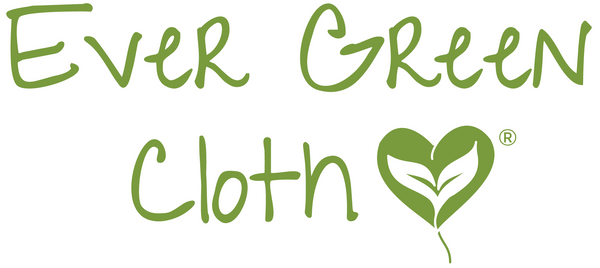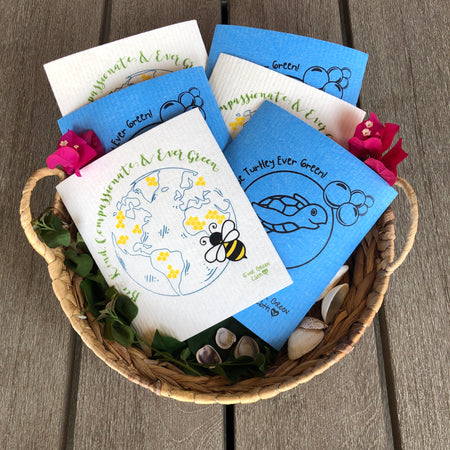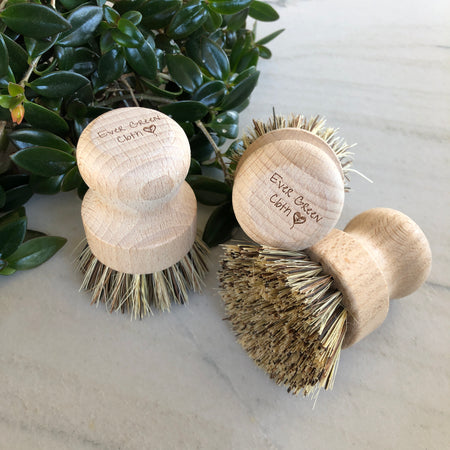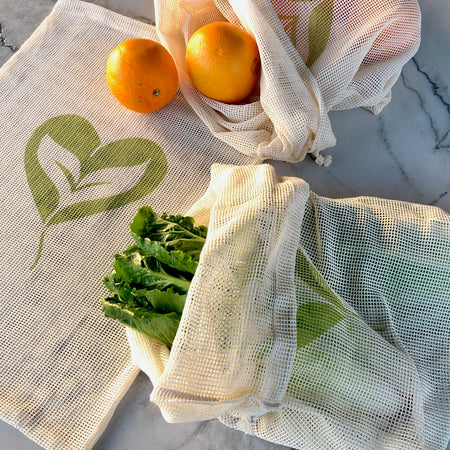Composting
Composting is nature’s way to recycle. It is the controlled, natural decomposition of organic matter. Microorganisms and macroorganisms break down organic materials into compost, or humus, a nutrient-rich soil amendment that improves the health and efficiency of your garden ecosystem from the ground up.
Benefits Of Composting
- Soil: Benefits your yard and garden by improving soil health and fertility, which increases plants’ resilience to pests, disease, and other environmental stressors.
- Water: Helps soil hold more moisture, minimizing erosion, runoff and nutrient loss, and reducing the need for frequent watering.
- Recycle: Diverts valuable organic resource from form becoming hazardous materials in the landfill, and encourages natural nutrient cycling.
- Money: Saves you money by conserving water and replacing the need to purchase commercial fertilizers and soil amendments.
Composting can be practiced almost anywhere... in your backyard, at work or at school, even in an apartment! All you need to get started is a little bit of space, the basic ingredients, and an understanding of the process.
Easy ways to composting in your backyard

1
Choose your type of backyard composter & location
You can use either an open pile or a compost bin. Bins have the advantage of being neat, keeping animals out and preserving heat. You can purchase compost bins from a variety of garden and home stores, or you can build your own compost bin.The size and type of bin you purchase or build will depend on how much compostable material you generate.
You should choose a location which is flat, well-drained and sunny. Most importantly you should find a convenient location.

2
Alternate layers
Start putting down a thin layer of brown material — leaves, chopped stems, wood chips to allow for drainage and aeration. Sift over it a thin layer of soil, compost, or manure and then simply alternate between layers of greens materials (nitrogen-rich material) and browns (carbon-rich material) – including the Ever Green Cloth and/or other compostable products you may have.
Avoid dog and cat feces, tea and coffee bags, citrus peels, fish and meat scraps, glossy or coated paper, sticky labels on fruits and vegetables, fats, grease, lard or oils (odor problems and pests), coal or charcoal ash (contains substances harmful to plants), diseased or insect-ridden plants, or any yard trimmings treated with pesticides.

3
Add kitchen and yard waste as they accumulate
Collect your kitchen compostables in a container. Find a handy place to store this container – on the counter, under the sink or in the freezer. When it is full, empty its contents into the compost bin.
Whenever you add food scraps or yard waste, be sure to top it with a layer of browns. Depending on the type of compost bin or pile you have chosen there may be specific ways of adding and maintaining compost. Most of the composters you purchase come with instructions; follow these instructions for best results.

4
Maintenance
1. When you add fresh material, be sure to mix it in with the lower layers.
2. Materials should be as wet as a wrung-out sponge. Add dry materials or water – whichever is needed – to reach this moisture level.
3. Mix or turn the compost once a week to help the breakdown process and eliminate odor.

5
Harvest your compost
Finished compost will be dark, crumbly and smell like earth. You should be able to have finished compost within four to six months of starting your bin.
Remove all the finished compost from the bin, leaving unfinished materials in the bin to continue decomposing.

6
How to use your compost?
- Sprinkle your lawn a few times a year.
- Use your compost as top dressing for flower beds and at the base of trees and shrubs.
- Mix compost in with garden and flower bed soil.
- Use as a soil conditioner when planting or transplanting trees, flowers and shrubs by filling the hole with half compost and half soil.





